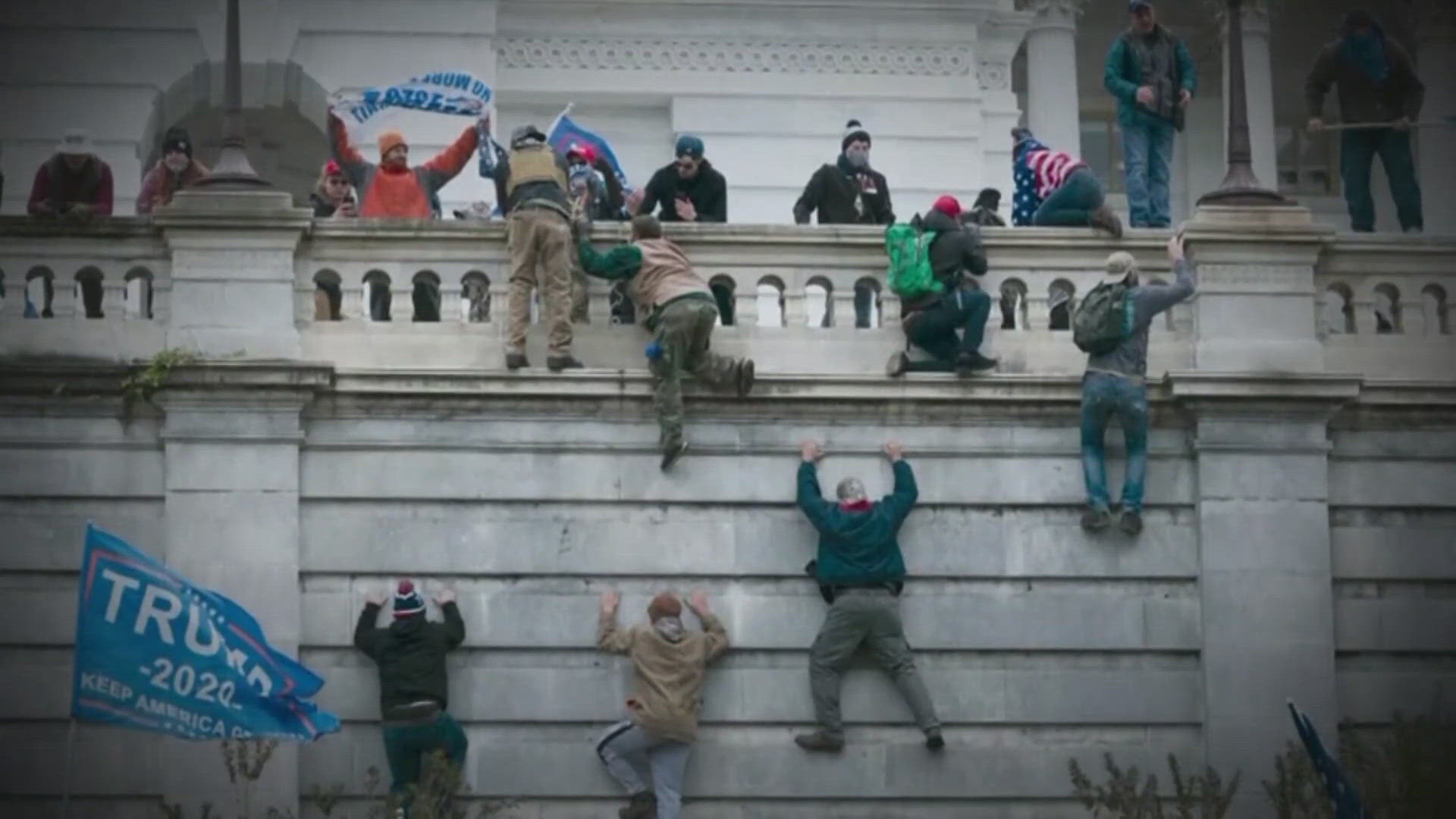DALLAS — The U.S. Supreme Court limited the scope of a statute used to prosecute Jan. 6, 2021, rioters and the decision could have an impact on at least one North Texan’s conviction.
Larry Brock, a retired U.S. Air Force officer, was seen in video and photos on the floor of the U.S. Senate dressed in combat gear.
He was convicted of multiple misdemeanors and one felony: obstruction of an official proceeding.
Friday, the U.S. Supreme Court said the statute used to obtain felony obstruction convictions related to Jan. 6 was too broadly applied.
“It’s the best interpretation of the law and the best thing for the country as well,” said Charles Burnham, Brock’s defense attorney.
He said the SCOTUS decision could potentially be “quite significant,” for his client.
The statute in question has roots in Texas.
Enacted after the Enron scandal, it was meant to prevent obstruction of a proceeding by outlawing the destruction of evidence in financial crimes.
The U.S. Department of Justice had maintained that the rioters’ mere presence at the Capitol was enough to be considered obstruction.
In the 6-3 decision, justices said obstruction charges should only involve documents.
“Myself and many other people believe the Jan. 6 prosecution used that law in ways it was never intended, ways that pose a threat to civil liberties and first amendment rights,” Burnham said.
“The supreme court did the right thing by significantly narrowing the reach of that law to bring it back within its proper scope.”
Of the approximately 1,425 people charged with federal crimes related to Jan. 6, only 52 are in situations like Brock – where the only felony they were convicted of is obstruction.
Each of those 52 people were also convicted of other misdemeanor charges, according to the U.S. Attorney in Washington D.C.
The case was brought to the Supreme Court by one rioter and now it returns to a court of appeals in D.C.
Burnham said the decision from the appeals court will further clarify Brock’s future.
He’s been released after serving time, but remains under federal supervision.
If the felony is ultimately overturned, “it will give him a lot of his life back, meaning he doesn’t have to live the rest of his life as a convicted felon which as of now he will.”
Also on WFAA.com:

